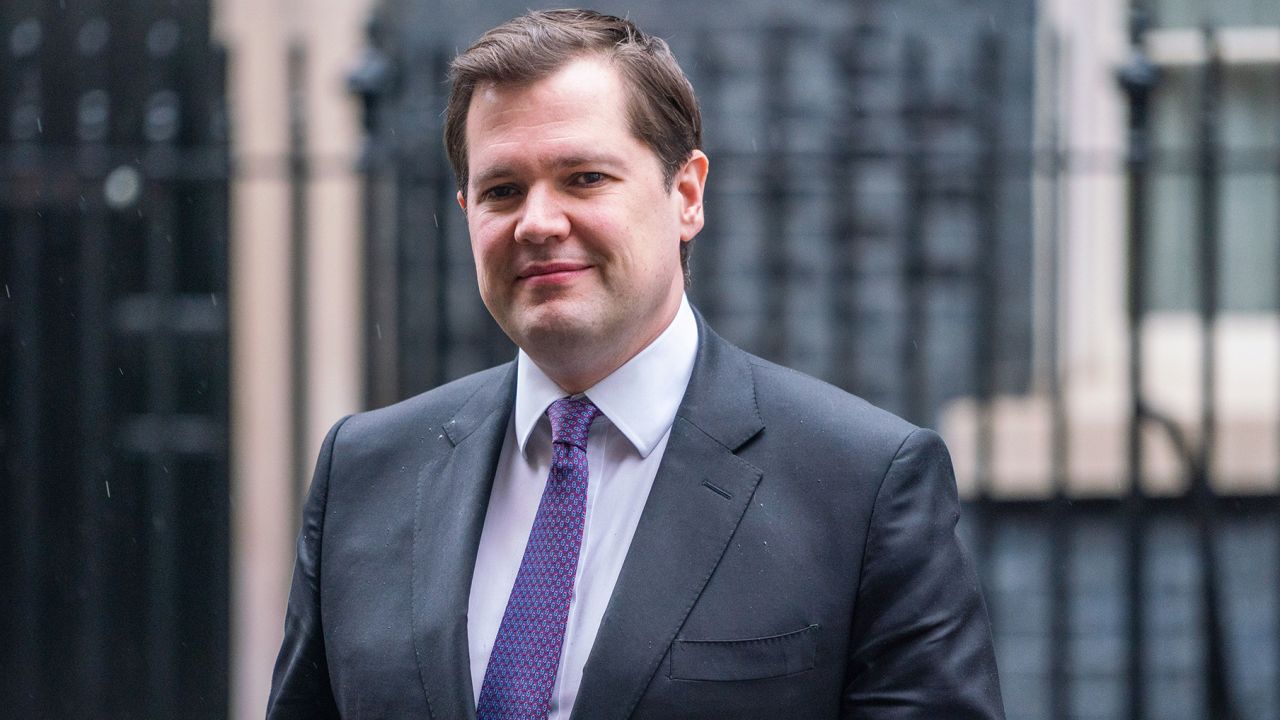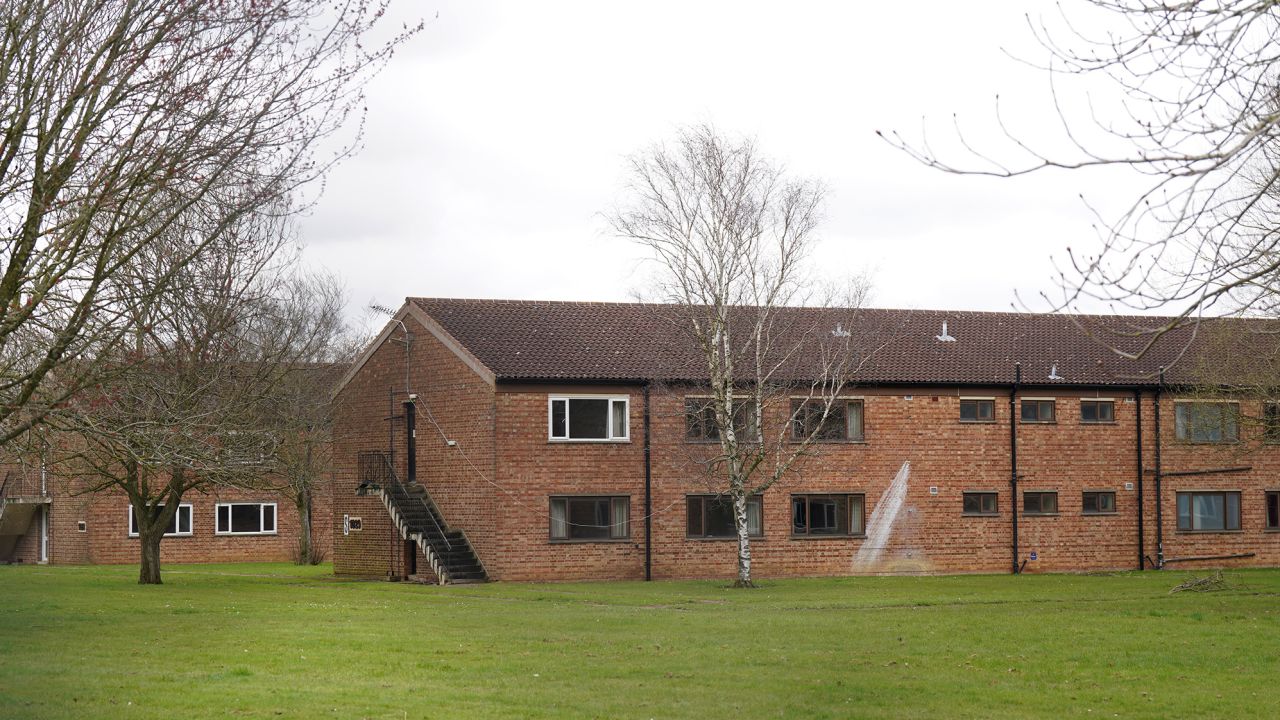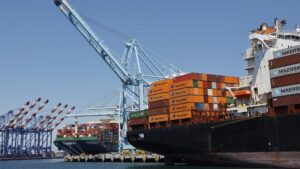UK plan to house migrants in barracks and barges is condemned as ‘cruel’ and unworkable | CNN

London
CNN
—
The UK government has put forward plans to house migrants in disused military bases rather than hotels and is examining the possibility of using barges, in controversial proposals that have further inflamed tensions over immigration.
British Immigration Minister Robert Jenrick introduced the plan on Wednesday, which is aimed at deterring undocumented people crossing the English Channel from France on small boats, part of the UK government’s extensive crackdown on migrants, refugees and asylum seekers entering the country.
Human rights advocates condemned the new proposal as the Home Office’s “latest cruel scheme” targeting people who have endured “unimaginable struggles,” while opposition lawmakers said it signals the government’s “failure” to deal with asylum claims in the United Kingdom.
“All of us deserve safety, and the chance to be part of a community – especially people who have faced unimaginable struggles and are rebuilding their lives in the UK. (This) is yet another ploy by this government to … distract from the real issues affecting our communities,” Mary Atkinson, the campaigns and networks manager at the Joint Council for the Welfare of Immigrants, told CNN.
And Yvette Cooper, the shadow home secretary, tweeted on Wednesday: “Time and again Tories chase headlines instead of doing the hard work to go after smuggler gangs, clear the backlog (of asylum claims), reform resettlement and family reunion and get a new agreement (with) France to stop dangerous crossings undermining our border security and putting lives at risk.”

Jenrick said on Wednesday that the government will use military sites “being disposed of” in Essex and Lincolnshire and a separate site in East Sussex, adding that the accommodation will consist of “repurposed barrack blocks and portacabins.” He told lawmakers in the Commons that the sites would be scaled up to hold several thousand migrants.
The minister added that the government was also “continuing to explore the possibility of accommodating migrants in vessels as they are in Scotland and in the Netherlands.”
Deputy Prime Minister Dominic Raab also told Sky News on Wednesday the government will consider housing migrants on barges to deter from the “perverse incentive” of hotel accommodation. The contracted use of hotels was envisioned as a temporary measure, but adds strain to the asylum accommodation system. The cost of housing asylum seekers in hotels has increased over the past year, now exceeding £6 million ($7.4 million) a day, the Home Office told CNN in a statement.
Ministers have given no details on how the vessels will be funded, or whether they are available for immediate use.
The number of people risking the deadly crossing between Britain and France has skyrocketed in recent years. This has added to the number of unprocessed asylum claims in the UK, piling pressure on an immigration system which critics say is neglected and failing.
Thousands travel across the English Channel, one of the busiest shipping lanes in the world, in dinghies unfit for the dangerous voyage, hoping to claim asylum or economic opportunities in the UK. In 2022, 45,755 people crossed in small boats, according to UK government data. About 3,770 people have already made the crossing this year.
Experts are skeptical about the government’s latest proposals.
The new plan will expose the government to “accusations of cruelty without operating as much of a deterrent,” according to political analyst Tim Bale.
“It’s difficult to avoid the conclusion that this is more about garnering headlines rather than solving the problem,” Bale, professor of Politics at Queen Mary University of London, said of the plan.
“The alternatives being put forward, like housing people on ferries or cruise ships, are deeply problematic, and often as expensive or even more expensive than the current provision. So I would take the whole thing with a huge pinch of salt. In other words, I’ll believe it when I see it,” he told CNN.
Enver Solomon, CEO of the charity Refugee Council, said the announcements “do not provide any serious, workable solutions.”
“They won’t address the challenges of the system the government itself admits is failing due to its own mismanagement,” Solomon told CNN. “Instead we should be providing accommodation which treats people with humanity, dignity and compassion, not barges and shipping containers.”

Humanitarian bodies and NGOs have also slammed a series of contentious bills put forward by the UK government aimed at clamping down on the crossings, warning that such hardline policies could re-traumatize people fleeing war and conflict.
Earlier this month, Home Secretary Suella Braverman defended a controversial illegal migration bill, despite criticism from the United Nations and other global bodies that the plan could “undermine” international law.
Under Braverman’s plans, people arriving via small boats would face detention and deportation. Those removed would also be banned from returning. However, the UN refugee agency said that if passed, the legislation “would amount to an asylum ban.”
At the time, Prime Minister Rishi Sunak vowed to “fight” any legal challenge to the controversial bill, playing down concerns that the bill breached the UK’s obligations under the European Convention of Human Rights.
On Tuesday, the UK Home Office also said Afghans who have been living in temporary UK accommodation for 18 months will be given three months’ notice to move out of so-called bridging hotels.
There are currently around 8,000 Afghans living in 59 bridging hotels in the UK, according to the Home Office. Afghans who arrived in the country via the Afghan citizens resettlement scheme (ACRS) and Afghan Relocations and Assistance Policy (ARAP) make up a fifth of people living in bridging hotels. The Home Office added that over 9,000 Afghans on the ACRS and ARAP schemes have been moved into settled accommodation.
But campaigners also warned that the plan could exacerbate the trauma experienced by people displaced by political strife and conflict in Afghanistan.
“We know from our work supporting men, women and children who (have) arrived in need of protection, given the trauma they will have experienced, that being housed in hotels for a long period can have a devastating impact on physical and mental health,” Alex Fraser, director for refugee support and restoring family links at British Red Cross UK, told CNN.
The UK also government proposed a scheme last year which would see asylum-seekers deemed to have entered the country illegally deported to have their asylum claims handled in Rwanda.
The first planned deportation flight to Rwanda was barred under the European Convention of Human Rights, a major point of discord in post-Brexit British politics.
The controversial policy was ruled lawful by the country’s High Court in December but it remains in legal limbo, with no deportations having taken place under the proposal since it was introduced by the government 11 months ago.






